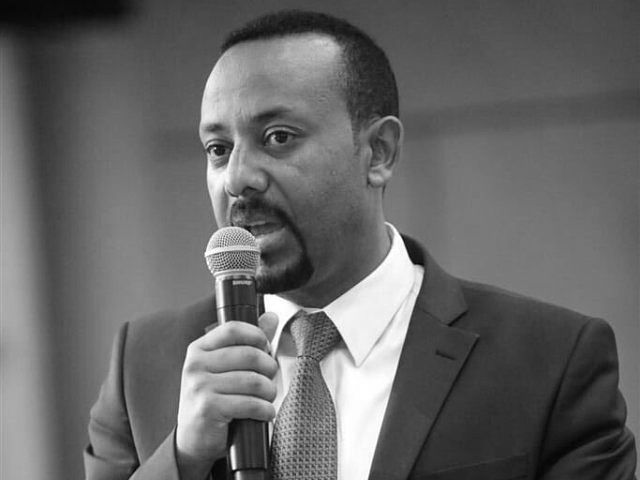 Prime Minister Abiy Ahmed. (Photo: Tadias Magazine)
Prime Minister Abiy Ahmed. (Photo: Tadias Magazine)
Updated: December 24th, 2020

As VOA reports due to the politically and ethnically polarized nature of the Ethiopian media environment in the Diaspora coupled with the current information blackout, for those of us who live outside the country “the search for verified, accurate news on the conflict” is an ever growing challenge. As a result “Ethiopians from the country’s roughly 3 million diaspora [find] themselves looking to other, often unreliable sources of information found on social media.” VOA adds: “For the [Diaspora] population, the media void struck right at the moment they most wanted news of what was happening in their home country.” (Photo: Reuters)
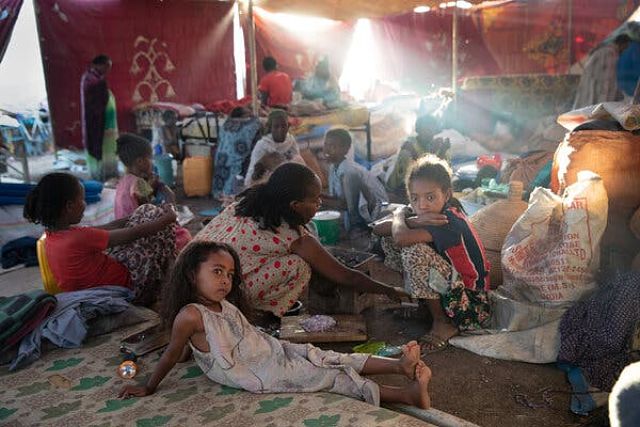
In Sudan, many of the refugees from Ethiopia are children. (NYT)
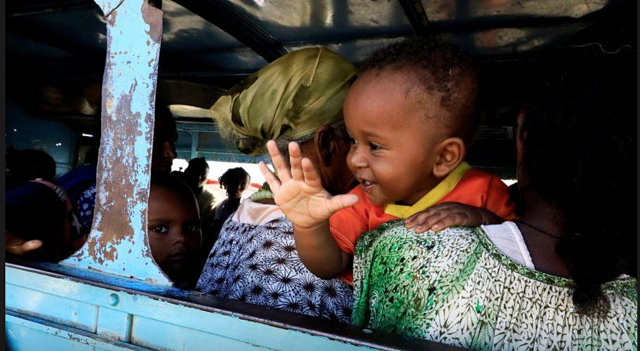
An Ethiopian refugee holds a child inside a courtesy bus in Sudan December 13, 2020. (REUTERS)
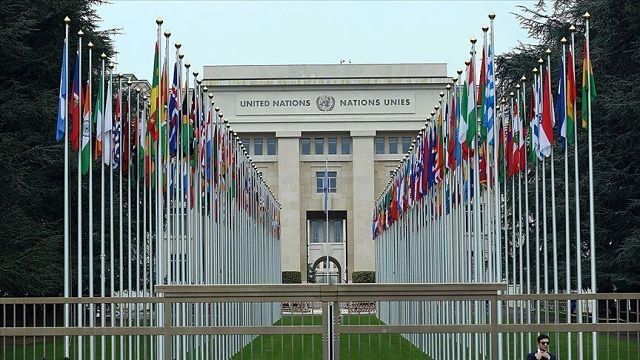
“The UN on Saturday (December 12, 2020) apologized to Ethiopia for a widely reported incident where its staffers breached security checkpoints in the Tigray region,” reports Addis Getachew for Anadolu Agency. “The UN Resident Coordinator for Humanitarian Affairs Catherine Sozy apologized for the behavior of the UN staffers, the state-owned Ethiopian News Agency reported citing a statement by Ethiopia’s Ministry of Peace.” (AA)
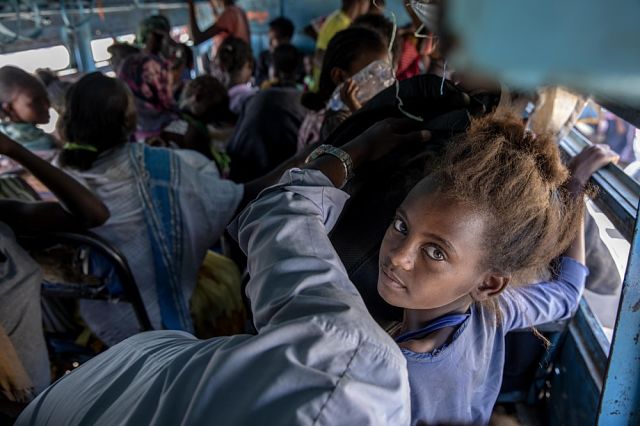
Refugees from Ethiopia ride a bus going to a shelter in Sudan on Dec. 1, 2020. (AP Photo)
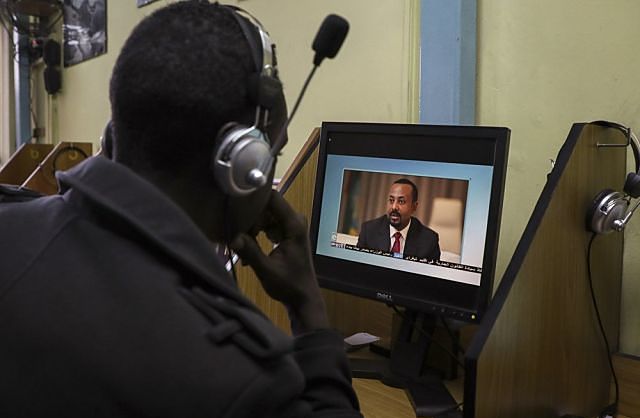
Prime Minister Abiy Ahmed said on Saturday, November 28th that military operations in Tigray have been completed, shortly after he announced federal troops had seized full control of Mekelle. (AP Photo)
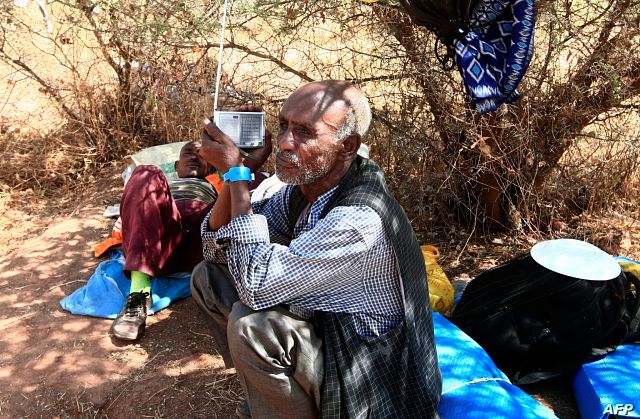
An Ethiopian refugee in Sudan listens to a radio. (AFP)
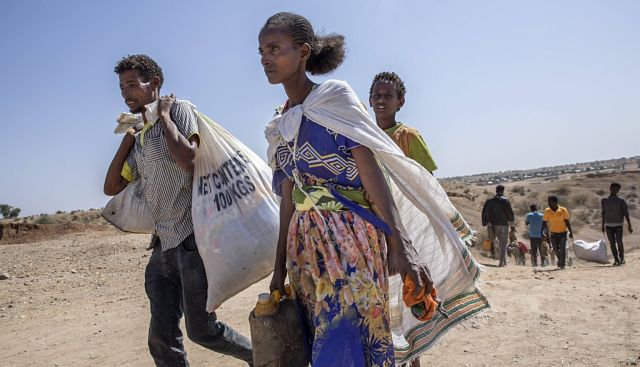
Refugees who fled the conflict in Tigray arrive on the banks of the Tekeze River on the Sudan-Ethiopia border, in Hamdayet, eastern Sudan, Saturday, Nov. 21, 2020. (AP Photo)
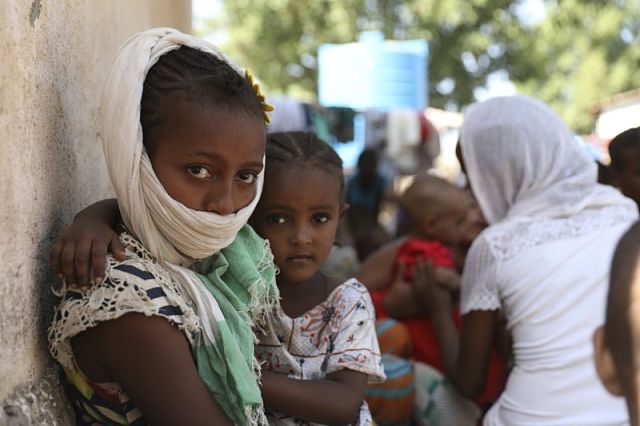
Refugees from Ethiopia wait to register at the UNCHR center in Sudan on Saturday, Nov. 14, 2020. Tens of thousands of people have fled a conflict in Ethiopia for Sudan, sometimes so quickly they had to leave family behind. There is not enough to feed them in the remote area of southern Sudan that they rushed to. (AP)
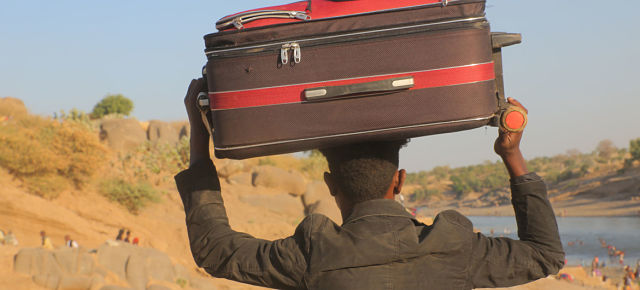
Insecurity in Ethiopia is driving people into Sudan. (© UNHCR)
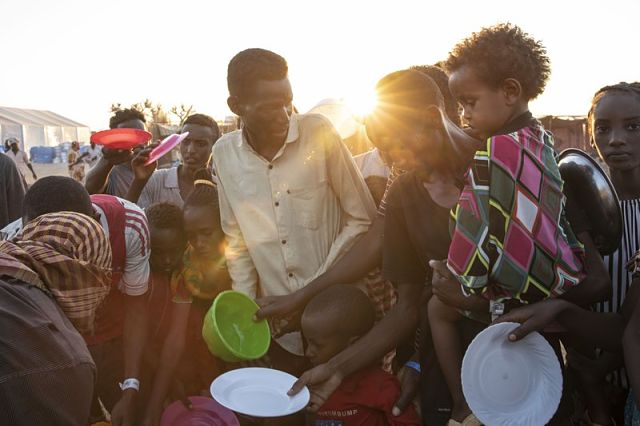
Refugees who fled the conflict in Ethiopia wait to get cooked rice served by Sudanese local volunteers in eastern Sudan, Monday, Nov. 23, 2020. (AP Photo)
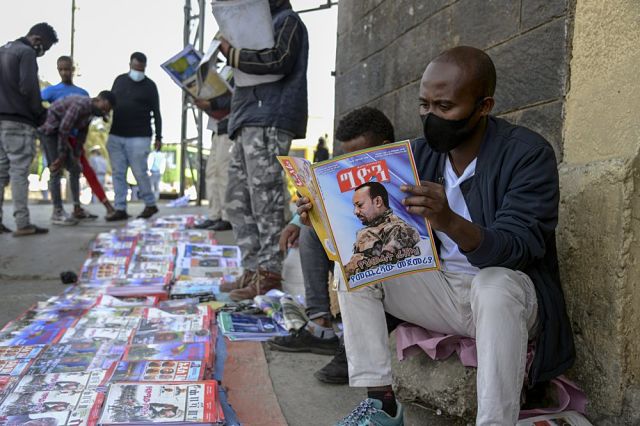
People read newspapers and magazines reporting on the current military confrontation in the country on a street in Addis Ababa, Saturday, Nov. 7, 2020. (AP Photo)
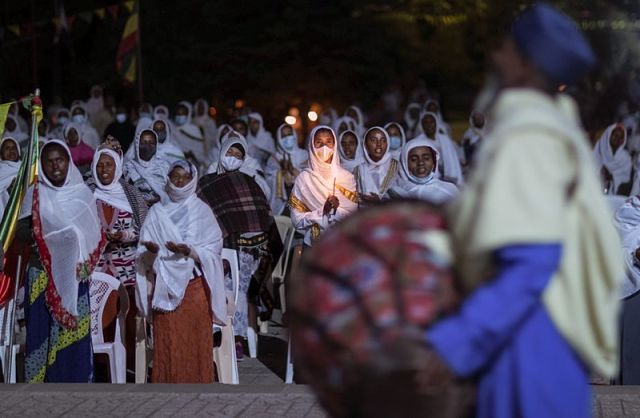
Ethiopian Orthodox Christians light candles and pray for peace during a church service at the Medhane Alem Cathedral in the Bole Medhanealem area of Addis Ababa, Thursday, Nov. 5, 2020 (AP Photo/Mulugeta Ayene)
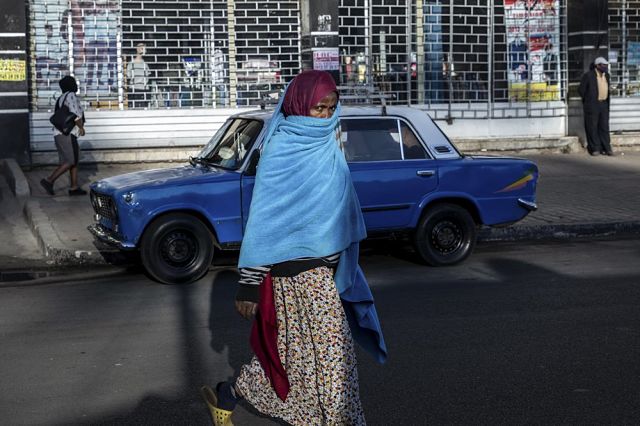
(AP Photo/Mulugeta Ayene)
For Ethiopia’s Diaspora, Seeking News Amid Communication Blackout is a Challenge
VOA News
By Salem Solomon
December 18, 2020
WASHINGTON – When violence erupted in Ethiopia’s Tigray region between the federal government and the Tigray People’s Liberation Front (TPLF) last month, those living in the global diaspora scrambled for information.
The Ethiopian army went into Tigray on Nov. 4, after the government accused local forces of attacking a military base there. TPLF leaders called the federal government’s response a war against the people of Tigray.
The search for verified, accurate news on the conflict was hampered by authorities preventing many international media organizations from accessing the conflict zone and disruptions to phone and internet connections that resulted in an information blackout. And Ethiopians from the country’s roughly 3 million diaspora found themselves looking to other, often unreliable sources of information found on social media.
For the country’s migrant population, the media void struck right at the moment they most wanted news of what was happening in their home country.
Most rely on messaging apps including Telegram, WhatsApp and Viber which provide a “lifeline” connecting the diaspora to people at home, Tewodros Workneh, an assistant professor of global communication at Kent State University in Ohio, said.
“It’s incredibly difficult if you live in this country [in the diaspora] or in other parts of the world when there is a media blackout in the conflict region right now. It’s really frustrating for diaspora communities,” Tewodros added.
In the information vacuum, people look to other, often unreliable sources of information.
“When you cannot hear from your relatives and your friends and family members, what you rely on are third parties,” said Tewodros, who studies media development, including in Ethiopia. “And often times this vacuum is filled by different political interest groups on social media platforms who have no knowledge about what’s going on.”
Misinformation spread widely during the conflict. Images were shared on social media platforms of old airplane crashes alongside claims they had been downed Ethiopian fighter jets. An image showing a 2015 factory explosion in China was passed off as being from a missile strike by Tigrayan forces against neighboring Eritrea.
Ethiopia has a range of media outlets run from outside the country. But oftentimes these satellite television networks are politically or ethnically aligned, journalists and scholars said.
Befeqadu Hailu, executive director of the Center for Advancement of Rights and Democracy based in the capital, Addis Ababa, said that outlets abroad can play an important role but that bias sometimes influences the way they report on events.
“They have a positive contribution especially in times of repression by the government here [in Ethiopia]. They can be the voice of the silenced here,” Befeqadu said. But, he added, they can sometimes “aggravate” the conversation because of their allegiances, or through using sources or information that are less reliable.
“I think that the diaspora media is usually more divided than the media organizations that are here,” Befeqadu said. “The diaspora is more divided along ethnic lines, along ideological and political ideological lines, and they show their allegiance without fear.”
Reeyot Alemu, a journalist for the U.S.-based Ethiopian news website Ethio 360 Media, which reports primarily in Amharic, says some journalists do their due diligence and refrain from becoming swayed along ethnic or political lines.
“There are gaps created as a result of working from abroad but responsible journalists always verify information using all the means available,” Reeyot told VOA in Amharic. “But there is still a big gap when it comes to applying journalism principles not only caused by physical distance, but also taking sides.
The challenges of reporting from overseas have been exacerbated during the information blackout.
The government denied responsibility for the latest internet cuts. A tweet by the Ethiopia State of Emergency Fact Check, which says it provides the latest information on the state of emergency, shared a video on Twitter that it says shows unidentified individuals breaking into the northern region’s office of Ethio-Telecom, the country’s sole internet provider and then “intentionally” disconnecting the network.
Internet blocks during times of conflict or unrest in Ethiopia aren’t new. Data from NetBlocks, which tracks cybersecurity and internet governance, shows other regions in the country were cut off during protests or violence following major events such as the killing of prominent Oromo artist Hachalu Hundessa in June. In that case, internet service was cut off for 23 days, the nonprofit organization said.
The government said at the time that social media were being used to exacerbate protests, during which at least 86 people were killed.
Befeqadu, of the Center for Advancement of Rights and Democracy, said journalists find themselves in a precarious position whenever there is conflict. “Since the military confrontation between the federal government and the Tigray region started, about seven journalists are detained and now in jail,” he said. “So, it is always tough when the government is under scrutiny. To be a reporter or a media affiliate in Ethiopia comes always with a risk.”
Reeyot, who covers her home country from more than 11,000 kilometers away in the United States, said the struggles are felt from afar.
“It is not just working from abroad, but the lack of access and internet blackout makes it difficult to follow the current situation, even for someone inside the country. Closing all access is problematic,” Reeyot said.
Reeyot knows firsthand the risks for journalists in Ethiopia. She served just over four years of a 14-year sentence for terrorism because of her critical reporting for the independent weekly Feteh, before her release in 2015.
In addition to these challenges, journalists working in the diaspora endure regular threats and accusations of bias. Reeyot says the harassment and intimidation comes from all sides but can be strong from the government.
Ethiopia had shown signs of reversing its poor press freedom record when Abiy Ahmed came to power in 2018. The country was hailed for releasing journalists and political dissidents and the new prime minister last year spoke of the need to open up the media space, while cautioning against the spread of hate speech and fake news.
But during points of conflict or unrest, including the Tigray fighting, Ethiopia has reverted to blocking access to information, detaining critical journalists or pressuring media who report critically on the government or appear more favorable to opposition, media rights groups say.
On Dec. 12, the deputy director general of the Information Network Security Agency, Kefyalew Tefera, accused the U.S.-based Oromia Media Network and Ethio 360 Media of collaborating with the TPLF.
Reeyot, who was imprisoned when the TPLF was in power, said that the accusation appears to be “simply because the media is deemed not to have a favorable view of the government.”
Accusations of supporting or working for the TPLF have led to an increase in the number of journalists jailed in Ethiopia since the fighting. Figures released by the New York-based Committee to Protect Journalists showed seven journalists jailed in Ethiopia on Dec. 1—nearly all of whom were arrested in November for coverage of the TPLF.
—
What’s Happening in Ethiopia Is a Tragedy By Tsedale Lemma
Tsedale Lemma is the editor in chief of the Addis Standard.
NYT
Nov. 11, 2020
ADDIS ABABA, Ethiopia — The announcement last week that the government was about to launch a military operation into one of the country’s regions came, to put it lightly, as a shock.
Not only was it very far from the emollient statecraft that won Prime Minister Abiy Ahmed the Nobel Peace Prize last year, it also seemed to shatter the purpose of his premiership. When he rose to power in 2018, Mr. Abiy promised to guide Ethiopia into a new era of peace, prosperity and national reconciliation.
But on Nov. 4, he dispatched the Army to Tigray, one of the country’s 10 semiautonomous regions and home to roughly 6 percent of the population, accusing its leaders — with whom he has increasingly sparred — of attacking a government defense post and attempting to steal military equipment.
And in the days since, Mr. Abiy imposed a six-month state of emergency on the Tigray region, declared its legislature void and approved a provisional replacement. As fighting raged, the internet and telephone networks have been shut down. Hundreds are reported to be dead.
This is a tragedy. Ethiopia stands on the cusp of civil war, bringing devastation to both the country and the wider region. While the situation is volatile and uncertain, this much is clear: Mr. Abiy’s political project, to bring together the nation in a process of democratization, is over. And much of the blame must be laid at his door.
After years of persistent anti-government protests, economic troubles and widespread unrest, Mr. Abiy took over a country on the brink of collapse. At least one million people were internally displaced in 2017, according to the United Nations, as the country was shaken by protests from Oromo and Amhara ethnic groups, who together make up nearly two-thirds of the population. Presenting himself as a reformer, the avalanche of changes promised by Mr. Abiy, who took over in April 2018, seemed to avert the worst of the country’s problems.
But Mr. Abiy overreached. His first cardinal mistake was to sideline the Tigray People’s Liberation Front, for decades the most powerful political force in the country, in the peace he brokered between Ethiopia and Eritrea. By pushing the Tigrayan leadership aside as he sealed his signature achievement, Mr. Abiy made clear the limits to his talk of unity.
That was a taste of what was to come. Last year, Mr. Abiy moved to dismantle the old political order. Going beyond his original remit, he proposed reconfiguring the coalition that had ruled the country for 27 years — the Ethiopian People’s Revolutionary Front, or E.P.R.D.F., which itself comprised a gamut of regional parties — into a new, single party.
The T.P.L.F., which founded and dominated the coalition, was not keen on the change — but Mr. Abiy went ahead with it regardless, creating a rift with the Tigrayans and undermining the country’s delicate political settlement. Far from minimizing the fallout, Mr. Abiy exacerbated it, removing all ministers from the T.P.L.F. from his cabinet.
By the time the new party was announced, in November 2019, the damage was done. The T.P.L.F., angered by the whittling away of its power and concerned that the country’s federal system was under threat, had not joined. They weren’t alone in their disquiet. In Mr. Abiy’s own region, Oromia, many were skeptical of the new order, while southern Ethiopia splintered into disorder, as multiple administrative zones demanded self-rule. After coming to power on the promise of unity, Mr. Abiy had alienated and frustrated key components of his coalition. Suddenly, he looked vulnerable.
The coronavirus changed the calculus. The all-important national election, scheduled for August, was postponed; the focus became how to mitigate the damage wrought by the pandemic. But the political problems didn’t go away.
—-
Ethiopia says forced into ‘aimless war’
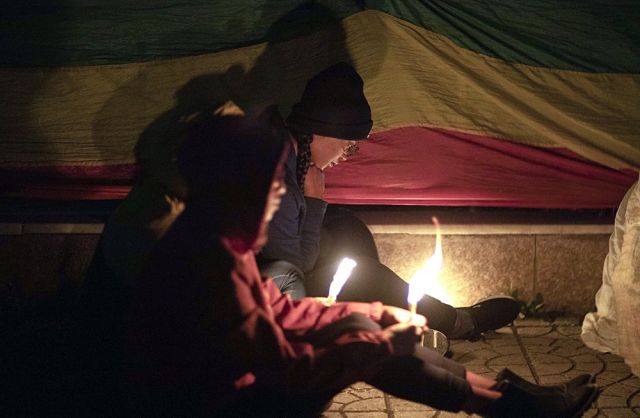
Ethiopian Orthodox Christians light candles and pray for peace during a church service at the Medhane Alem Cathedral in the Bole Medhanealem area of the capital Addis Ababa, Ethiopia Thursday, Nov. 5, 2020. (AP Photo/Mulugeta Ayene)
The Associated Press
By ELIAS MESERET
Updated: November 5th, 2020
ADDIS ABABA, Ethiopia (AP) — Ethiopia’s army said Thursday the country has been forced into an “unexpected and aimless war” with its well-armed Tigray region, while Tigray asserted that fighter jets had bombed areas around its capital — a marked escalation with little sign of the two sides willing to talk to calm the crisis.
Ethiopia’s army deputy chief said military forces are being sent to the fighting in Tigray from other parts of the country. “The army will not go anywhere,” Birhanu Jula told reporters, amid fears that the conflict would spill into other regions of Africa’s second-most populous nation. “The war will end there.”
For his part, the Tigray region’s president, Debretsion Gebremichael, told reporters that “we are in position to defend ourselves from enemies that waged war on the Tigray region. … We are ready to be martyrs.”
Ethiopia’s government has not commented on the bombing allegation, read out Thursday evening on the Tigray regional broadcaster.
The strong words came a day after Prime Minister Abiy Ahmed told the nation the military will carry out further operations this week in response to an alleged deadly attack on a military base by the regional government.
Observers warn that a civil war in Ethiopia involving Tigray could destabilize the already turbulent Horn of Africa. The prime minister, awarded the Nobel Peace Prize last year for his sweeping political reforms, now faces his greatest challenge in holding together a country of some 110 million people with multiple ethnic and other grievances.
Communications remained cut off in the northern Tigray region after services disappeared at just around the time Abiy’s office first announced the attack and military action early Wednesday. The lack of contact has challenged efforts to verify the Ethiopian federal government’s account of events.
The Tigray capital, Mekele, appeared calm on Thursday morning but skirmishes took place elsewhere, a source told The Associated Press, speaking on condition of anonymity because they were not authorized to speak to the media about it.
Ethiopia’s army deputy chief asserted that members of the Tigray People’s Liberation Front are “fleeing and joining the army; those injured are receiving medical treatment.” The army was trying to avoid civilian casualties, he said.
The Tigray leader asserted that the Ethiopian army’s northern command is siding with the Tigray people, and he confirmed that fighting is also taking place in an area bordering the Amhara region, far from where the original clash was reported. “They are surrounding us with their forces,” he said.
Verifying either side’s claims remained a challenge.
“Certainly there is fighting, but I don’t think anyone can credibly assert who attacked who first,” former U.S. diplomat Payton Knopf, a senior advisor with the United States Institute of Peace, told the AP on Wednesday night. He wondered why the well-armed Tigray region’s forces would start by raiding a command post: “They’re not lacking for weaponry.”
Aid organizations and human rights groups are pleading for communications links to be restored and warning of a humanitarian disaster if hundreds of thousands of people flee fighting in the midst of the COVID-19 pandemic.
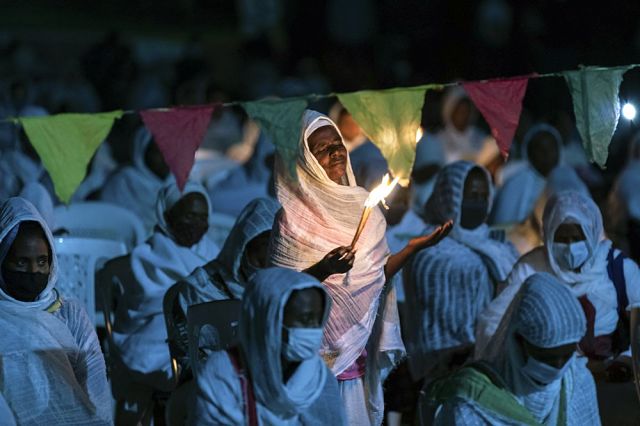
Ethiopian Orthodox Christians light candles and pray for peace during a church service at the Medhane Alem Cathedral in the Bole Medhanealem area of the capital Addis Ababa, Ethiopia Thursday, Nov. 5, 2020. The head of Ethiopia’s new state of emergency committee, Redwan Hussein, has said the federal government’s conflict is with a “small clique of TPLF circles that are keen to destabilize Ethiopia,” and the government must do everything possible to “liberate the Tigrayan people.” (AP Photo/Mulugeta Ayene)
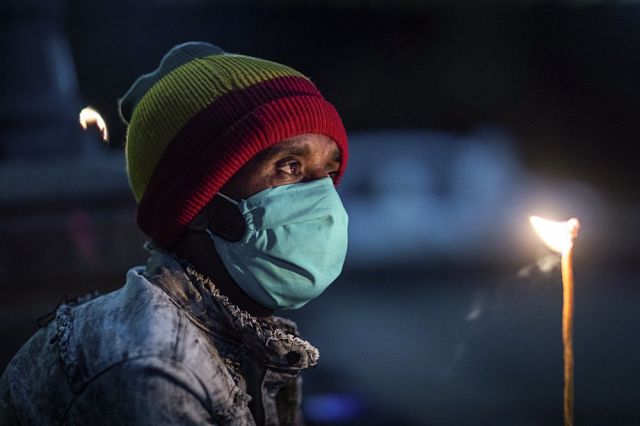
AP Photo/Mulugeta Ayene
Ethiopia has imposed a six-month state of emergency on the Tigray region, which played a dominant role in the country’s government and military before Abiy took office in 2018. Since then the region, feeling marginalized, has split from the ruling coalition and defied Abiy by holding a regional election in September that the federal government called illegal.
Tigray borders Eritrea, which fought a bloody border war with Ethiopia before the countries made peace in 2018, shortly after Abiy took power. The Tigray regional government has accused Eritrea of teaming up with Ethiopia’s federal government in this week’s offensive. Eritrea’s information minister did not respond to a request for comment.
TPLF officials have said airspace over the region is closed, and accused the federal government of deploying troops to “cow the people of Tigray into submission by force.”
The TPLF also invited other members of the security forces across Ethiopia to join it in “opposing the colonel Abiy’s regime.”
The head of Ethiopia’s new state of emergency committee, Redwan Hussein, has said the federal government’s conflict is with a “small clique of TPLF circles that are keen to destabilize Ethiopia,” and the government must do everything possible to “liberate the Tigrayan people.”
“Given the strength of Tigray’s security forces, the conflict could well be protracted,” the International Crisis Group said in a statement Thursday. “Tigray has a large paramilitary force and a well-drilled local militia, thought to number perhaps 250,000 troops combined.”
It appears unlikely that Ethiopian forces would quickly oust the TPLF leadership, the group said, and even then loyalists could mount “sustained resistance.” The statement called for “immediate, concerted mediation – local, regional and international.”
The TPLF over the weekend told the AP it’s not interested in negotiating with the federal government. It was not clear if that stance had changed in light of the new events.
It also was not clear who might step in to mediate.
U.S. Secretary of State Mike Pompeo in a statement overnight seemed to support the federal government’s account of events, saying the U.S. was “deeply concerned by reports that the Tigray People’s Liberation Front carried out attacks on Ethiopian National Defense Force bases in Ethiopia’s Tigray region on November 3. We are saddened by the tragic loss of life and urge immediate action to restore the peace and de-escalate tensions.”
—
War Looms in Ethiopia As PM Orders Military Against TPLF
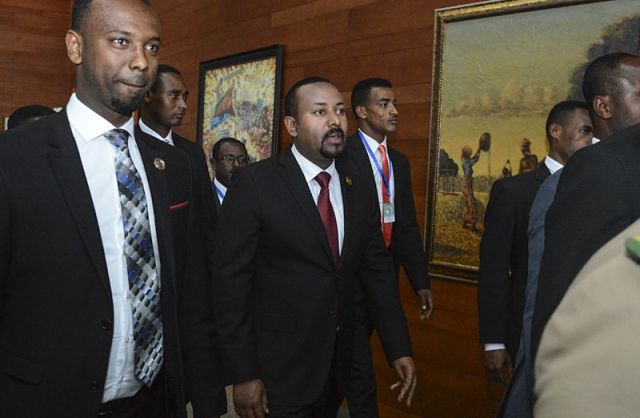
The statement by Prime Minister Abiy Ahmed’s office, and the reported attack by the well-armed Tigray People’s Liberation Front, immediately raised concerns that one of Africa’s most populous and powerful countries could plunge back into war. That would send a shock wave through the Horn of Africa and beyond. (AP photo)
The Associated Press
By ELIAS MESERET
Updated: November 4th, 2020
ADDIS ABABA, Ethiopia (AP) — Ethiopia’s prime minister on Wednesday ordered the military to confront one of the country’s regional governments after he said it carried out a deadly attack on a military base overnight, citing months of “provocation and incitement” and declaring that “the last red line has been crossed.”
The statement by Prime Minister Abiy Ahmed’s office, and the reported attack by the well-armed Tigray People’s Liberation Front, immediately raised concerns that one of Africa’s most populous and powerful countries could plunge back into war. That would send a shock wave through the Horn of Africa and beyond.
Addressing the nation on TV, Abiy announced “several martyrs” in the attack in Mekele, the northern Tigray region’s capital, and Dansha town. The prime minister said “the end is near” for the regional force, which is based in Ethiopia’s most sensitive region, neighboring Eritrea. The two countries made peace in 2018 after a long border war.
The TPLF had been the dominant part of Ethiopia’s governing coalition before Abiy took office in 2018 and announced sweeping political reforms that won him the Nobel Peace Prize last year. Those reforms, however, have opened space for old ethnic and other grievances. The TPLF, feeling marginalized, left the coalition last year. It remains a strong military force, observers say.
There was no immediate word from the TPLF, and all internet and phone lines were cut in the Tigray region following the announcement. Tigray TV reported that airspace has been closed over the region.
Ethiopia was already stressed by a dispute with Egypt over a massive Ethiopian dam project that has drawn rare attention by President Donald Trump to Africa, and by a multi-layer crisis with the COVID-19 pandemic, deadly ethnic violence and a locust outbreak.
Now the greatest test of Abiy’s rule has has come.
Tigray officials have objected to the postponement of Ethiopia’s national election, once set for August, because of the coronavirus pandemic, and the extension of Abiy’s time in office.
On Sunday, a senior TPLF official, Getachew Reda, told The Associated Press his side will not accept a negotiation with the federal government.
“What we need now is a national dialogue, not a negotiation,” he said. The TPLF says the release of detained former officials is one precondition to opening talks.
In September, people in Tigray voted in a local election, defying the federal government and increasing political tensions. Last month the federal government moved to send funding for the region to local administrations instead of the regional government, angering TPLF officials.
“This war is the worst possible outcome of the tensions that have been brewing,” William Davison, International Crisis Group’s senior analyst for Ethiopia, said Wednesday, urging a ceasefire. “Given Tigray’s relatively strong security position, the conflict may well be protracted and disastrous.”
Abiy’s statement asserted that the TPLF attacked a military base in Tigray early Wednesday and attempted to take artillery and other equipment. The statement accused the TPLF of arming and organizing irregular militias.
After months of “extreme patience” by the federal government, “a war however cannot be prevented only on the goodwill and decision of one side,” the prime minister’s statement said. “The last red line has been crossed with this morning’s attacks and the federal government is therefore forced into a military confrontation” to save the country.
Observers have worried for months about the growing tensions and their implications for the long-turbulent Horn of Africa region, where Abiy cast himself as a peacemaker shortly after taking office.
A report by the United States Institute of Peace said the fragmentation of Ethiopia “would be the largest state collapse in modern history, likely leading to mass interethnic and interreligious conflict … and a humanitarian and security crisis at the crossroads of Africa and the Middle East on a scale that would overshadow the existing conflicts in South Sudan, Sudan, Somalia, and Yemen.”
The international community needs to rally around the idea of national dialogue in Ethiopia, the International Crisis Group warned a week ago.
“The alternative, given the country’s multiple and bitter divides, is a potential march to war that would be catastrophic for Africa’s second most populous country and would send shock waves, and refugees, into other Horn of Africa countries as well as across the Mediterranean,” the group wrote.
—
Join the conversation on Twitter and Facebook.

























